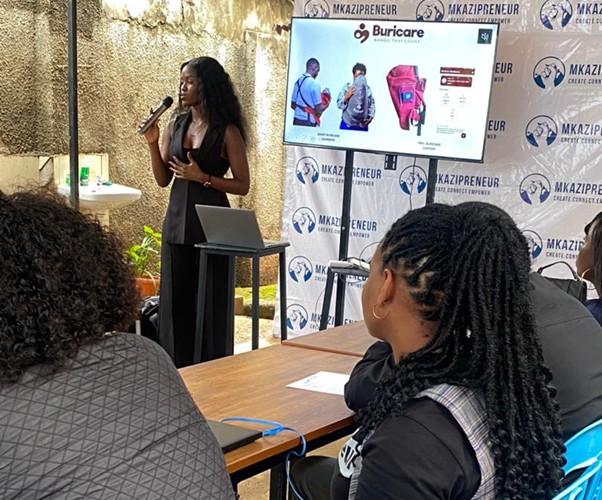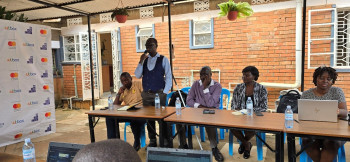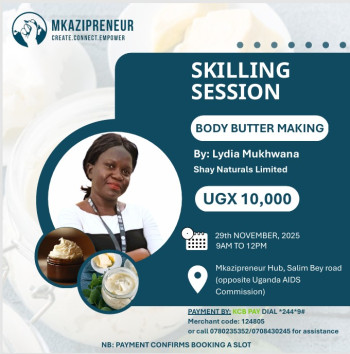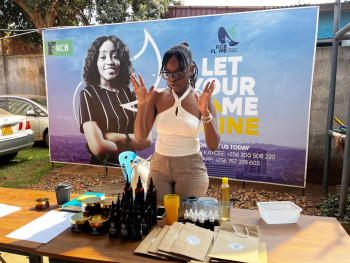For the everyday woman, life unfolds as a continuous flow of responsibilities. From managing work, sustaining a social life, keeping businesses running, securing personal well-being, and caring for family needs, it’s truly a balancing act that demands strength, resilience, and grace.
If this sounds familiar, you know how easy it is for mental health to take a back seat amidst all the daily demands.
That’s why we hosted a Networking Friday session at the Mkazipreneur Hub to provide practical solutions for working women facing challenges like burnout.
Led by Dr. Ayikoru Peace Comfort, CEO of BuriCare Limited, the session brought together participants who shared valuable tips and healthy coping strategies for preventing burnout and maintaining overall well-being.
As participants opened up about their journeys, they shared deeply personal stories of navigating experiences involving physical and emotional exhaustion, and how they managed to find their footing through the weight of burnout and the experiences that triggered it.
Dr. Comfort herself was no stranger to such experiences. After losing loved ones last year, the pressure to stay strong became overwhelming. Despite the façade of being a “strong girl,” she realized that grief couldn’t be ignored or managed through sheer willpower alone. Encouraged by a friend, she made the brave decision to seek therapy, a step that marked the beginning of her healing journey.
Similarly, Patricia Opio shared how severe burnout pushed her to seek help through rehabilitation, a decision that reshaped her understanding of self-care and boundaries. “Being in rehab for four months taught me how to say no to people in a respectful manner,” she shared. Setting these boundaries wasn’t easy, especially as a firstborn daughter in an African household. “When I started saying no, some family members pushed back with one even remarking, ‘but she’s the first born!” she recalled. “Now, my family knows that when I say no, it truly means no.”
Makai Conrad emphasized the importance of recognizing early signs of burnout, such as losing interest in activities one once enjoyed. He advised, “Don’t try to handle burnout on your own. Reach out to friends on a deeper level, open up, and share what you’re going through. Spending too much time in your own head can be unhealthy. Connection and conversation are key to healing.”
Makai Conrad addresses members at The Networking Friday.
Participants also highlighted the value of engaging in hobbies such as reading, nature walks, hiking, and attending social events like karaoke or band nights which are simple yet effective ways to keep the mind engaged during periods of burnout. They also stressed the importance of asking for help, as it allows one to better prioritize responsibilities and create time for self-care which is a crucial step toward maintaining balance and emotional well-being.





